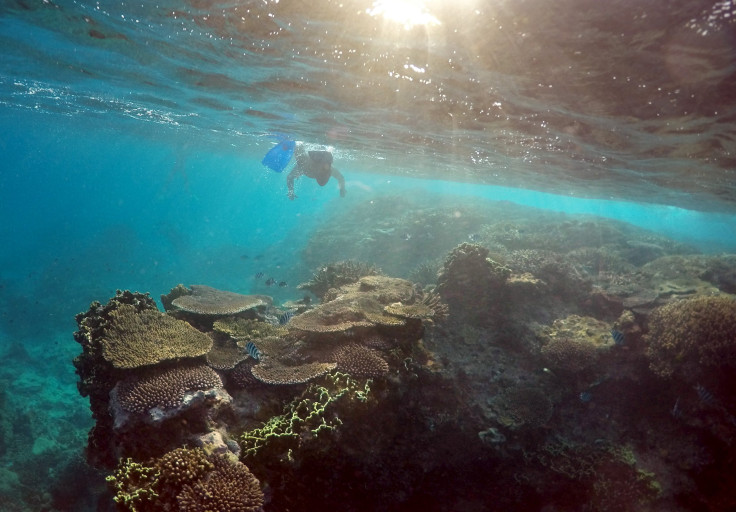Coral bleaching: Future climate change may render Australia's Great Barrier Reef’s protective mechanism useless, experts say

While the fate of Australia's Great Barrier Reef hangs in balance, a new study has revealed some shocking facts about the reef's coral bleaching event, and it’s not good. The study has revealed that if waters continue to heat up, the corals in the reef may lose a vital protective mechanism that will make it nearly impossible for the corals to survive near-future bleaching and climate change events.
The study, published in the journal Science, found out that the reef was able to survive past bleaching events as they were exposed to a pattern of progressively warming waters in the lead up to each episode. Unfortunately, climate change will destroy this protective pattern.
The warming pattern was closely investigated by researchers from the U.S. National Oceanic and Atmospheric Administration (NOAA), ARC Centre of Excellence for Coral Reef Studies (Coral CoE) at James Cook University (JCU) and University of Queensland (UQ).
According to the researchers, corals prepare themselves to be more tolerant when bleaching occurs after they are exposed to a pre-stress period, weeks before as the temperatures start rising steadily. This acts like a practice run for the corals. In the past three decades, this protective “practice run” was observed in three-quarters of the Great Barrier Reef’s stress events.
Coral CoE’s Tracy Ainsworth, who is also the study’s lead researcher, said that the “practice run” produces heat shock responses in the corals that in turn reduces the bleaching severity and increases coral mortality.
“In future summers, bleaching events will occur more often and, without the practice run, become even more severe — with a greater risk for coral mortality and a fast decline in coral cover across reefs,” said co-author Dr. Scott Heron from Coral Reef Watch at NOAA.
The current coral bleaching event has reached humongous levels with the bleaching extending all the way south to Sydney Harbour, reports The Sydney Morning Herald. While corals can recover from bleaching, prolonged bleaching makes them susceptible to diseases and starvation.





















